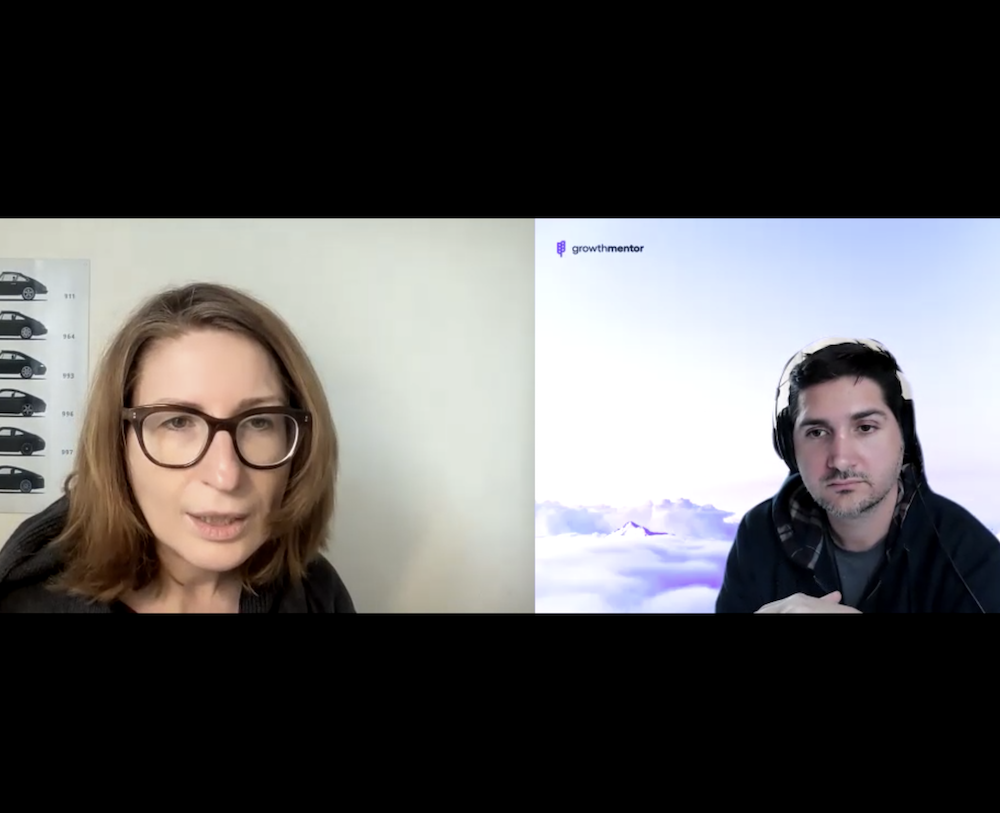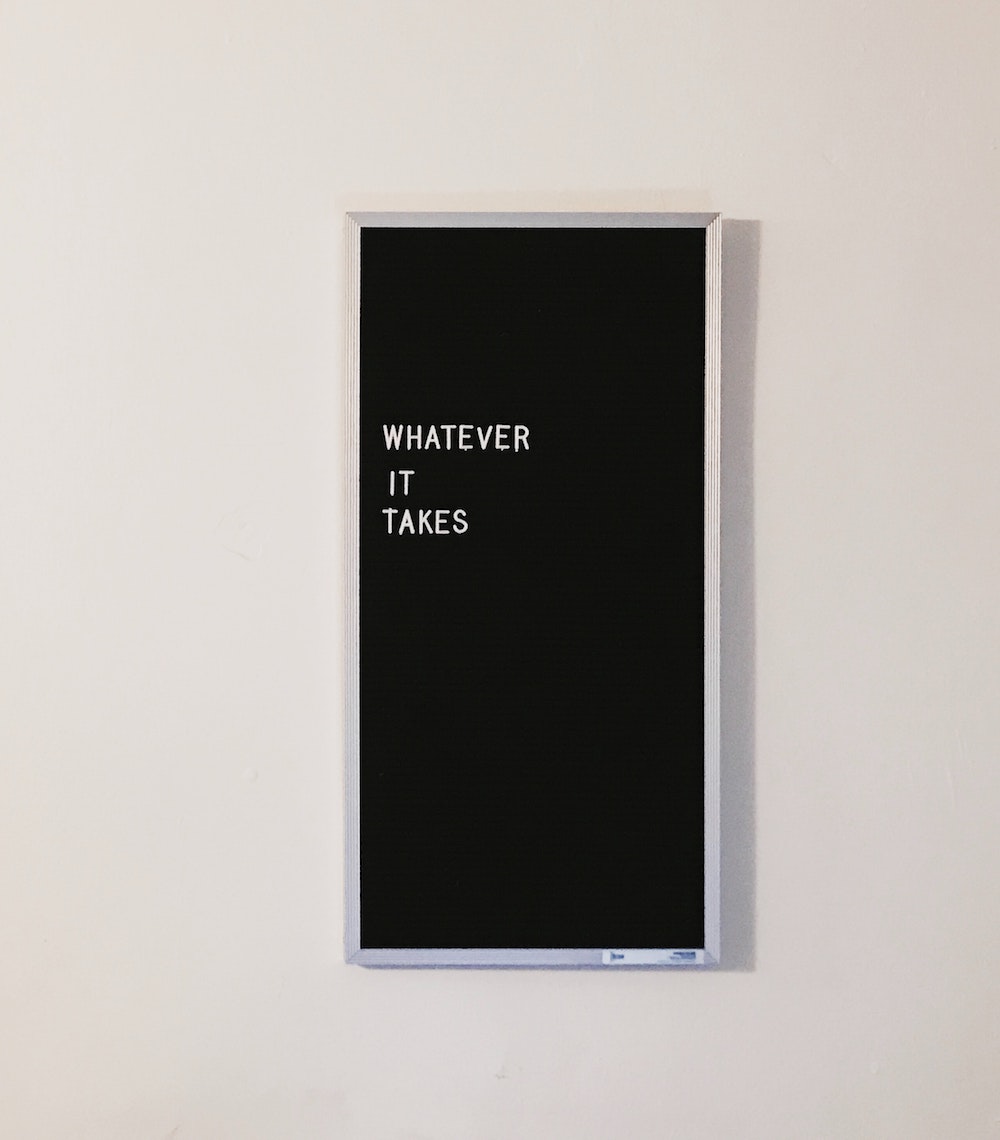The Silent Red Flag: Why Talking Too Much Makes You a Terrible Mentor
Last week, I watched a recording of myself during one of my first mentoring sessions I had done back in 2018. I had to pause the video out of sheer embarrassment. There I was, drowning my mentee in a 20-minute monologue about my journey starting GrowthMentor.
My mentee’s face told the whole story – that polite, glazed-over look that screams “when can I actually talk about my challenges?”
Here’s the raw truth that hit me while watching that recording: The more experienced you become, the worse mentor you’re likely to be. Your hard-earned expertise isn’t just failing to help – it’s actively getting in the way.
Think about your last mentoring session. How much of it was you talking? Be honest. If you’re like most experienced founders or executives turned mentors, you probably spent most of it sharing stories, giving advice, and explaining how you solved similar problems in your journey. It felt good, right? Helpful even.
But what if I told you that every minute you spend talking is a minute you’re potentially damaging your mentee’s growth? That your “valuable insights” might be nothing more than self-indulgent storytelling dressed up as guidance?
This isn’t just my opinion after an uncomfortable self-reflection session. There’s hard data behind why your expertise might be your biggest liability as a mentor. But before we get there, I want you to do something that might hurt: Record your next mentoring session. Count how many times you interrupt with “helpful” advice. Track how many minutes you spend talking versus listening.
I did. And what I found forced me to completely rethink what it means to be a good mentor.
Let’s talk about why your brilliant advice might be the very thing holding your mentees back.
The Science of Shutting Up
Let’s talk about what happens in your brain when a mentee presents you with a problem. That instant surge of recognition, the excitement of having a relevant experience to share, the genuine desire to help – it all feels right, doesn’t it? Natural, even.
But your brain is playing a clever trick on you.
Psychologists call it “pattern recognition bias” – our tendency to see similarities in situations and jump to conclusions based on past experiences. As seasoned entrepreneurs and leaders, we’ve developed highly tuned pattern recognition. It’s what makes us good at what we do. But in mentorship? It’s our Achilles’ heel.
Here’s what’s actually happening when you rush to share your experience:
First, you’re pattern-matching based on incomplete information. While your mentee is still explaining their situation, your brain is already racing ahead, fitting their challenge into the framework of your past experiences. But business challenges are like fingerprints – they might look similar from far away, but the details make them uniquely different.
Second, you’re short-circuiting their cognitive development. When you jump in with solutions, you’re robbing your mentee of the most valuable part of problem-solving: the struggle. It’s like watching someone solve a puzzle and blurting out the answer because you’ve done it before. Sure, they get to the solution faster, but they miss the critical thinking development that comes from figuring it out themselves.
The most powerful learning happens in the spaces between words – in those uncomfortable moments of silence where your mentee is forced to think deeper, make connections, and develop their own problem-solving muscles.
Your brain will tell you that sharing your experience is helpful. It will convince you that your pattern recognition is saving your mentee time and pain. But true growth – the kind that sticks and scales – comes from guided discovery, not downloaded wisdom.
Let’s talk about why your “I’ve been there” stories might be doing more harm than good.
Your “Been There” Stories Are Hurting Your Mentees
Let’s talk about the most overused phrase in mentorship: “When I faced this challenge…”
Look, I get it. You’ve built and/or grown successful companies. You’ve got battle scars and war stories that feel relevant. But here’s the uncomfortable truth: Most of your “been there” stories are just sophisticated ways of making the conversation about you.
Think about it. When you launch into a story about how you solved pricing, or hiring, or product-market fit, you’re making three dangerous assumptions:
- Your context matches theirs
- Your solution would work for them
- Your experience is more valuable than their thinking process
The worst part? These stories create a false sense of security. Your mentee leaves the session feeling good (you solved a similar problem, after all!) but they haven’t actually developed the critical thinking skills they need.
They’re just borrowing your confidence, not building their own.
Here’s what your “helpful” storytelling is actually doing:
- Preventing deep problem analysis
- Creating dependency on external validation
- Substituting your judgment for theirs
- Building false confidence based on borrowed experience
Want to be genuinely helpful? Next time you feel a story coming on, try this instead: “What aspects of this challenge feel unique to your situation?”
Because let’s be honest – you haven’t “been there.” You’ve been somewhere similar, at a different time, with different constraints, different resources, and different goals.
What Real Mentoring Sounds Like
Let me share examples of hypothetical mentoring conversations.
One is cringe inducing, the other has the potential to change a founder’s entire trajectory.
The Cringe
The Magic
See the difference?
The first mentor filled space. The second mentor created space.
Here’s what most mentors never learn: Discomfort is your ally.
When you sit in silence after asking a question, two powerful things happen:
- Your mentee is forced to think deeper
- The real problem usually surfaces
Some of the most transformative moments in mentoring happen after 7-10 seconds of silence. Most mentors can’t handle 3 seconds without jumping in.
During one of my mentoring sessions last month, I completely transformed a founder’s approach to their startup with a single question and 15 seconds of silence: “What would you do if you weren’t afraid of being wrong?”
The silence was excruciating. The breakthrough was beautiful.
Want to test yourself? In your next mentoring session, ask a good question and then start counting silently. See how long you can let the silence work its magic before your expertise gets impatient.
Real mentoring isn’t about having the right answers. It’s about creating the space for your mentee to find them.
Let’s Challenge Some Popular Myths About Mentorship
Here’s an uncomfortable truth that nobody talks about: Having an impressive resume often makes you a terrible mentor.
Every mentorship platform out there (including mine, if I’m being honest) falls into the same trap. We parade around successful founders and executives like trophies. “Look at these incredible people who can help you! They’ve built unicorns! They’ve had massive exits!”
But after seven years of running GrowthMentor, I’ve noticed something disturbing: Some of our most credentialed mentors are the least helpful. And it’s not because they don’t want to help – it’s because their success actually gets in the way.
Here’s why: Success breeds certainty. The more you’ve “made it,” the more convinced you become that your way is the right way. And that certainty? It’s poison to good mentoring.
Think about how we match mentors today. We obsess over:
- Years of experience
- Industry expertise
- Company size
- Exit valuations
But when’s the last time you saw a mentor profile that said “Exceptionally good at helping you think through problems without forcing my solutions on you”?
Here’s my controversial take: Maybe you shouldn’t be a mentor. At least not right now.
Take a hard look at yourself. Do you:
- Love sharing your war stories?
- Feel confident you know the solution before hearing the full problem?
- Get impatient when conversations meander?
- Pride yourself on your pattern recognition?
If so, you might be better suited for startup advisory roles where your expertise is the actual point. And that’s perfectly okay. The world needs advisors and experts.
But what it desperately needs are fewer mentors who confuse downloading their experience with helping others grow.
The 30-60-10 Framework for Not Screwing Up
If you’re still reading, you might be ready for a better way. Here’s the framework I wish I’d learned years ago:
30% Questions
- “What assumptions are you testing?”
- “What would you do if you knew you couldn’t fail?”
- “What part of this keeps you up at night?”
- Never ask anything that starts with “Have you tried…”
60% Listening
- Active silence (count to 10 before speaking)
- Note-taking (it forces you to shut up)
- Head nods (communicate presence without words)
- Zero multitasking (close your damn laptop)
10% Sharing
- Only when explicitly asked
- Framed as options, not answers
- Focused on process, not outcomes
- Always preceded by “This might not apply, but…”
The Tools That Force Better Mentoring:
- A physical timer on your desk showing talk time
- A note card with “COUNT TO 10” written in big letters
- A list of go-to questions (not go-to answers)
- A recording of your sessions (nothing humbles like hearing yourself talk too much)
I know this framework feels constraining. Good. Most of us need constraints on our expertise. Your vast experience is like a fire hose – useful for putting out fires, but terrible for helping someone learn to drink.
Start Fixing Your Mentoring Today
Let’s get practical. Reading this article and nodding along isn’t going to make you a better mentor. Taking uncomfortable action will.
Here’s your five-day mentoring makeover:
Day 1: The Recording Challenge
Record your next mentoring session. All of it. I don’t care how uncomfortable it makes you – that’s the point. Watch it back and track:
- How many times you interrupted
- How long you talked vs. listened
- How many questions you asked vs. stories you told
Warning: This will hurt. Good.
Day 2: Build Your Shut-Up System
- Set up a physical timer visible during calls
- Write “10 SECONDS OF SILENCE” on a Post-it
- Close every other tab on your computer
- Put your phone in another room
Your only job is to create space for thinking.
Day 3: Develop Your Question Arsenal
Not all questions are created equal. Build a list of power questions that force deeper thinking:
- “What’s the real problem beneath this problem?”
- “How would you solve this if you had unlimited resources?”
- “What are you avoiding looking at?”
- “What makes this urgent now?”
Notice none of these start with “Have you considered…”
Day 4: Track What Actually Matters
Forget vanity metrics like “number of mentees.” Start measuring:
- Silence-to-talking ratio
- Questions-to-statements ratio
- Mentee breakthrough moments
- Problems solved by the mentee (not you)
Day 5: The Brutal Self-Assessment
Review your recording. Grade yourself honestly:
- How many times did you make it about you?
- How often did you jump to solutions?
- When did you actually help versus when did you just talk?
The Mirror Challenge: Face Your Truth
Ask yourself the hardest question in mentoring:
Are you doing this to help them grow, or to prove you’ve grown?
Because here’s the brutal truth, most of us become mentors to validate our own journey. To prove our experience matters. To feel like our struggles meant something.
But real mentorship isn’t about you. It never was.
You want to be a great mentor? Shut up. Listen. Question. Create space.
And maybe, just maybe, you’ll discover that your greatest value isn’t in your experience at all.
It’s in your silence.
Are you ready to become a mentor?




